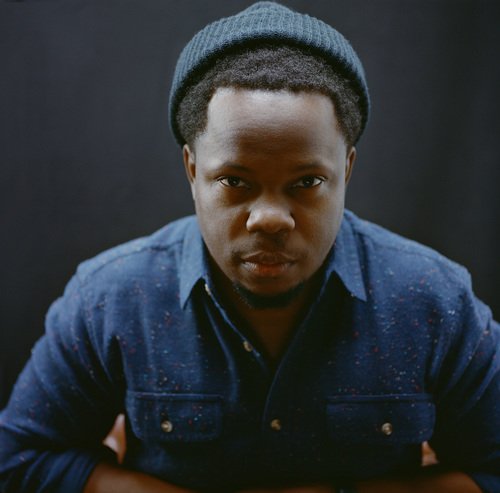Ambrose Akinmusire
During his 15-year career, Ambrose Akinmusire has paradoxically situated himself in both the center and the periphery of jazz, most recently emerging in classical and hip hop circles. He’s on a perpetual quest for new paradigms, masterfully weaving inspiration from other genres, arts, and life in general into compositions that are as poetic and graceful as they are bold and unflinching. His unorthodox approach to sound and composition make him a regular on critics polls and have earned him earned him grants and commissions from the Doris Duke Foundation, the MAP Fund, the Kennedy Center
The Berlin Jazz Festival and the Monterey Jazz. While Akinmusire continues to garner accolades, his reach is always beyond—himself, his instrument, genre, form, preconceived notions, and anything else imposing limitations.
Motivated primarily by the spiritual and practical value of art, Akinmusire wants to remove the wall of erudition surrounding his music. He aspires to create richly textured emotional landscapes that tell the stories of the community, record the time, and change the standard. While committed to continuing the lineage of black invention and innovation, he manages to honor tradition without being stifled by it.
Akinmusire is a rigorous practitioner with an uncompromising dedication to creation. “I’ve learned to accept the consequences of believing in invention and creativity. You’re gonna be misunderstood. But my horse blinders have gotten a lot longer and lot thicker over the years.”
Born and raised in Oakland, California, Ambrose Akinmusire (pronounced ah-kin-MOO-sir-ee) was a member of the Berkeley High School Jazz Ensemble when he caught the attention of saxophonist Steve Coleman. Akinmusire was asked to join Coleman’s Five Elements, embarking on a European tour when he was just a 19-year-old student at the Manhattan School of Music. After returning to the West Coast to pursue a master’s degree at the University of Southern California, Akinmusire went on to attend the Thelonious Monk Institute of Jazz in Los Angeles, where he studied with Herbie Hancock, Wayne Shorter and Terence Blanchard.
In 2007 Akinmusire won the prestigious Thelonious Monk International Jazz Competition, decided by a panel of judges that included Blanchard, Quincy Jones, Herb Alpert, Hugh Masekela, Clark Terry and Roy Hargrove. That year Akinmusire also won the Carmine Caruso International Jazz Trumpet Solo Competition and released his debut album Prelude…To Cora on the Fresh Sound label. He moved back to New York and began performing with the likes of Vijay Iyer, Aaron Parks, Esperanza Spalding and Jason Moran. It was also during this time that he first caught the attention of another discerning listener, Bruce Lundvall, President of Blue Note Records.
Akinmusire’s Blue Note debut When The Heart Emerges Glistening was released in 2011 to rave reviews. The Los Angeles Times praised his “chameleonic tone that can sigh, flutter or soar,” adding that “Akinmusire sounds less like a rising star than one that was already at great heights and just waiting to be discovered.” DownBeat described his playing as “spectacular and not at all shy — muscular, driving, with a forward sound, pliant phrasing and a penchant for intervallic leaps,” concluding that “clearly something very special and personal is at work here, a vision of jazz that’s bigger than camps, broader and more intellectually restless than blowing sessions.”
